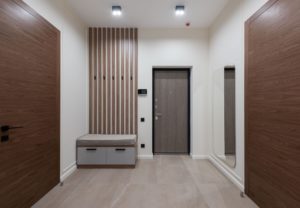Many of the most essential choices in the building of a restaurant are in the construction of its kitchen. The kitchen should be a functional workspace for the chef and his staff, in addition to being clean enough to meet health regulations. One specific aspect of kitchen construction is choosing the right flooring.
Why does it matter so much?
One of the most important concerns restaurateurs have when building a kitchen is how easy it is to clean. The kitchen will be exposed to all kinds of messes and hazards. The easier it is to keep clean, the healthier and safer the staff and the food will be. That means it should be non-porous and fluid resistant in order to prevent the absorption of food and other chemicals.
This brings to a second concern: safety. Knives, high temperatures, spills, and fires are just some of things found in a kitchen. While the floor should be resistant to fluid and liquids, it should absolutely never be too slippery. It should also be somewhat resistant to high temperatures and chemicals.
A third, but no less important, concern is longevity. The floor of a restaurant is likely to take an intense pounding on a nearly daily basis. That means it must be highly resistant to damage and warping. It must be resistant to chipping, scuffing, and so on.
Though optional, it might also be important to choose a presentable form of flooring as well, especially if your kitchen is partially or completely visible to your customers.
Epoxy flooring is the best solution
Gone are the days when tiles were the only option in flooring. Nowadays, many businesses across a wide array of industries are choosing epoxy flooring for various areas. That is because the material can be customized in quite a number of ways.
Additives can be added to give the flooring resistance to certain chemicals. These chemicals can also be added to inhibit the possibility of fungal or bacterial growth. There are even skid additives that can be introduced into the epoxy to prevent excess slipping.
If the floor sustains any damage, you would not have to replace large sections of it. Your flooring professionals would simply have to redo a small area and your floor will look brand new.
In addition to that, there are nearly an infinite number of designs and colors available out there. Epoxy floors can even be customized to designate certain areas. Flake chips can be added to give the floor a sheen.
The Urethane Cement System
One particular option that is popular in many restaurants, breweries, and other industrial food preparation facilities is the Urethane Cement system. The system has 9800 PSI compressive strength rating. To put that into perspective: it has more compressive strength than concrete.
These systems also bear resistance to a wide range of temperatures and chemicals, making them perfectly safe for use in kitchens.
Final thoughts
In the process of building a restaurant business, it is important to spare no expense when it comes to health and safety in the kitchen. One important way you can keep both your staff and your customers safe and healthy is through epoxy floorings. There are so many ways to make it safer that it is impossible to ignore as an option.
If you’ve finally been convinced you need an epoxy floor in the kitchen of your restaurant in Phoenix, give us at AZ Polished Concrete a call. We provide affordable options to fit every need, and offer professional service to make your space look beautiful.





